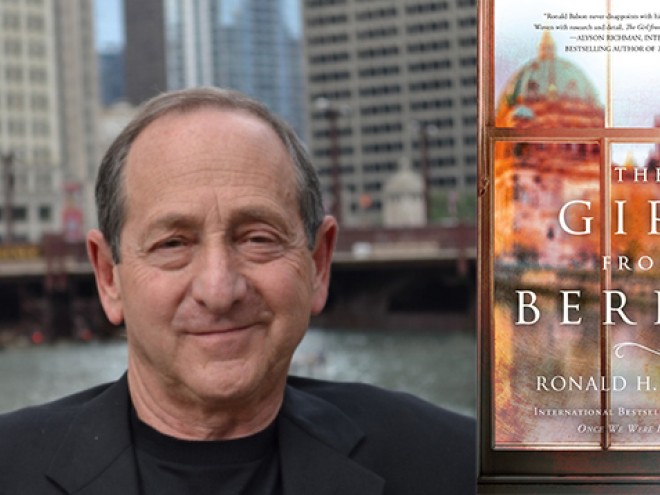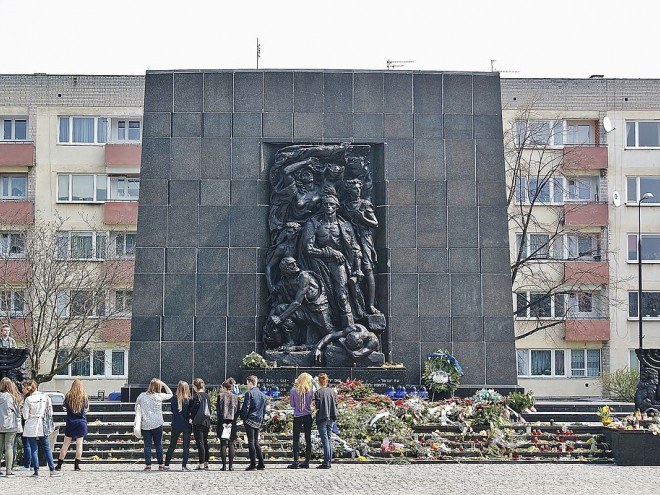When Liam Taggart, an investigator, and his wife, attorney Catherine Lockhart, are invited to dinner by the owner of their favorite Italian restaurant, they are offered a free trip to Tuscany to help the owner’s aging aunt Gabi who is being evicted from her vineyard by a large corporation. The corporation supposedly holds the title to the land, but Gabi knows that it is hers. Upon their arrival in Tuscany, she tells Catherine and Liam to read a memoir by a woman named Ada Baumgarten, a German violinist forced to flee Berlin and settle in Bologna, Italy when the Nazis took power. The book chapters alternate between Ada’s story and Catherine and Liam’s journey through the Italian legal system as they try to trace the chain of the land title.
From Ada, readers get a vivid description of the fate of Italy’s Jewish community during World War II and learn about Ada’s life as a German Jew in exile. Balson places real historical figures such as conductor Wilhelm Fürtwängler and Reinhard Heydrich in the story, providing context as the events unfold. As Catherine and Liam discover, Ada has a direct link to Gabi and her vineyard, but someone connected to the corporation has taken extreme measures to hide it. Liam, Catherine, and the young Italian lawyer who assists them must sort through mountains of paperwork to uncover the malevolent circumstances affecting Gabi’s land.
Murder, deception, and greed are involved, but this compelling story also offers the beauty of music and love, and the possibility of redemption.
Barbara M. Bibel is a librarian at the Oakland Public Library in Oakland, CA; and at Congregation Netivot Shalom, Berkeley, CA.
Discussion Questions
Courtesy of Ronald Balson
- In 2009, forty-seven countries approved the Terezin Declaration on Holocaust Era Assets, urging that every effort take place to rectify the consequence of wrongful seizures of property belonging to victims of the Holocaust and of Nazi persecution. Did it surprise you that restitution of Nazi seized property was still an issue sixty-five years after the war? Why wasn’t it resolved earlier?
- Despite the prominence and availability of many talented women soloists in the 1940’s, none of the members of any major orchestra were women. Did that shock you? What other challenges did Ada face in making her career decisions?
- When reflecting on her meeting with Brigadefuhrer Reinhard Heydrich, Ada said, “I was flattered in a manner that made me ashamed.” What did she mean?
- Ada’s father, Jacob Baumgarten, was forced to make a number of crucial decisions that affected not only his professional life, but also his family. How do you feel about the choices he made?
- The manner in which Ada related to her mother changed over time? How did it change and what were the reasons?
- Ada’s romance with Kurt seemed inapposite and filled with irreconcilable conflict. How did you feel about her continuing in that relationship?
- There were several circumstances when Ada was required to show extreme courage. Which ones stood out in your mind?
- The evil SS officer Herbert Kleiner’s character was based on Obersturmbannfuhrer Herbert Kappler, the notorious SS chief in Rome. Why was Kleiner so obsessed with Ada?
- Aunt Gabi refused to discuss Ada or provide any information to Catherine and Liam about the history of her farm, other than shipping Ada’s manuscript to them before their trip. Why do you think she failed or refused to be more proactive?
- The progressive disease that was the Nazi Holocaust could never happen in our world again. Or could it?



